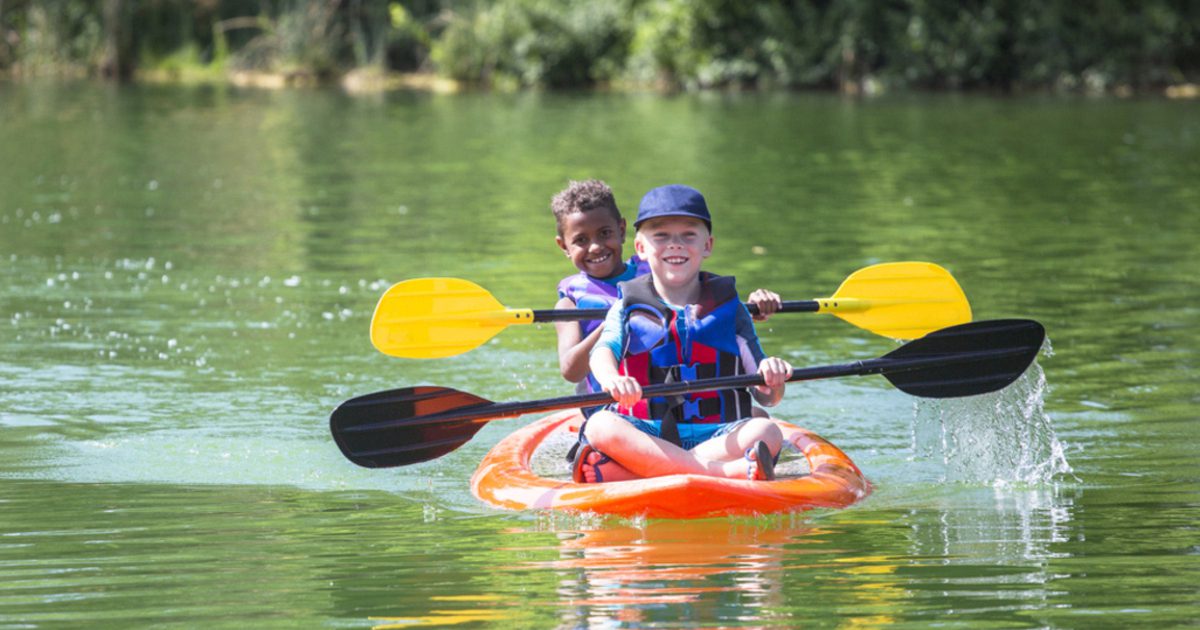March 7, 2023
Five tips from ACAAI to keep allergic campers symptom free
ARLINGTON HEIGHTS, Ill. (March 7, 2023) – It’s spring, which means parents all over the country are thinking about summer plans for their kids. Parents of children with allergies and asthma often face an added layer of concern as they wonder how they will keep their kids safe from allergy and asthma flares, while allowing them to have great summer fun.
“Most kids heading off to summer camp for the first time wonder how they’ll cope sleeping in a cabin with 10 other kids, if they’ll make friends, and what exactly is in the bug juice,” says allergist Kathleen May, president of American College of Allergy, Asthma and Immunology (ACAAI). “Meanwhile, parents of kids with allergies and asthma are wondering if the camp is prepared to handle an emergency situation should one arise.”
If you’re considering camp for your child with allergies or asthma, start planning now to make sure all details are locked down before camp begins. Below are five tips from ACAAI to help you and your child enjoy their summer camp experience.
- Is the camp set up for your child’s allergies? – While many camps are alert to medical issues like food allergies, some are more equipped than others. If you are concerned that a regular sleepaway camp isn’t fully prepared to handle your child’s allergies or asthma, consider a specialty camp. Increasingly, there are camps focused solely on kids with asthma, and camps that deal specifically with food allergies. These camps provide specialized medical staff who are trained in how to treat allergic diseases. An internet search should turn up a camp in your area that can provide the special focus your camper might need.
- Work with your allergist – Before hitting the trail, make sure your camper is well stocked with more than extra socks and the right sleeping bag. Visit your allergist to check whether prescriptions are up to date, symptoms are under control and your child’s dosages of medications haven’t changed. If your child has a severe allergy and has been prescribed an epinephrine auto injector, make sure they have the appropriate supply before they embark. Also talk with your child’s doctor about updating his or her COVID vaccination before camp.
- Communicate with camp personnel – Letters home from your camper aren’t the only needed exchange of information. Communicate your child’s health needs to camp staff well in advance. If asthma makes some activities difficult for your child, let their counselor know. Send details on what the medical staff needs to know about your child’s medications and ask how they handle emergencies. Find out where the nearest hospital is and how easy it is for staff to get there.
- Go ahead and mess with the mess hall – Food is a big part of any camp experience, particularly sleepaway camp. If your child has a food allergy, communicate with the kitchen staff to make sure no areas exist where cross contamination can occur. Find out how the camp communicates and monitors food allergy information, and determine whether that works for you and your child. If your child is attending day camp, send a bag lunch so you can guarantee he or she will be eating safe foods. Remind them that eating other kids’ food isn’t ok. Your camper should tell friends about their food allergy so that if a reaction happens, their friends will be prepared to help.
- No one wants to scratch around the campfire – Getting up close and personal with poison ivy should be avoided at all costs, but it can be particularly bad for those allergic to the plant. The rash that results from plants like poison ivy, poison oak and poison sumac is a form of allergic contact dermatitis and is very uncomfortable. You can send along calamine lotion with your camper, but they’ll probably need a trip to the camp nurse or doctor if they have an allergic reaction. Remind your camper: “Leaves of three, let them be.”
If allergies or asthma are a concern for your summer camper, it’s time to take control. See an allergist for expert care and relief. To find an allergist in your area, use the ACAAI allergist locator.
About ACAAI
ACAAI is a professional medical organization of more than 6,000 allergists-immunologists and allied health professionals, headquartered in Arlington Heights, Ill. The College fosters a culture of collaboration and congeniality in which its members work together and with others toward the common goals of patient care, education, advocacy, and research. ACAAI allergists are board-certified physicians trained to diagnose allergies and asthma, administer immunotherapy, and provide patients with the best treatment outcomes. For more information and to find relief, visit AllergyandAsthmaRelief.org. Join us on Facebook, Pinterest and Twitter.
Allergy, Allergy Symptoms, Allergy Treatment, Asthma, Asthma Symptoms, Asthma Treatment, Child Allergies, Food Allergies, Insect Allergies, Peanut Allergies, Severe Reactions, Anaphylaxis & Epinephrine

